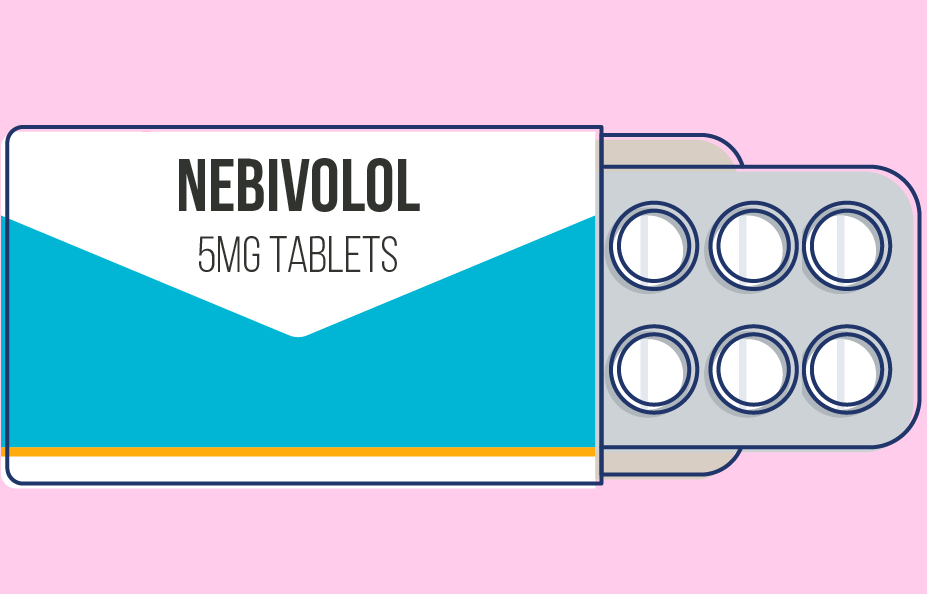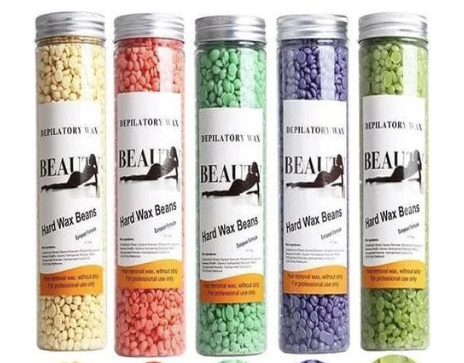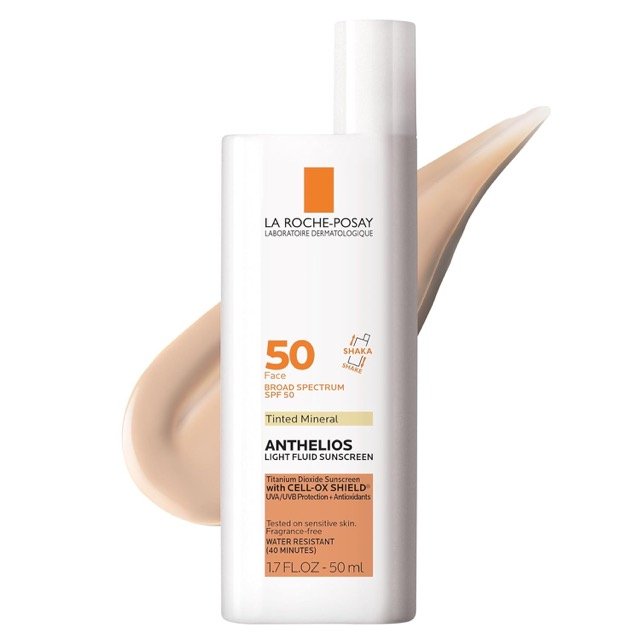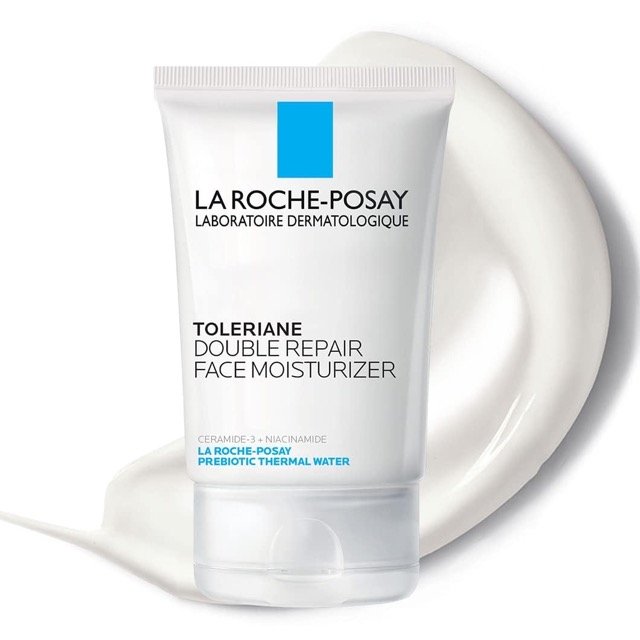Particularly when taken in doses lower than 10 mg daily, nebivolol is a selective beta-1 receptor blocker. The therapy of hypertension is indicated. Beta-blockers aren't thought of as first-line medications for treating hypertension. However, those with cardiovascular disease and hypertension make for the best beta-blocker users.Particularly when taken in doses lower than 10 mg daily, nebivolol is a selective beta-1 receptor blocker. The therapy of hypertension is indicated. Beta-blockers aren't thought of as first-line medications for treating hypertension. However, those with cardiovascular disease and hypertension make for the best beta-blocker users.
Nebivolol Dose in Adults
Starting doses of nebivolol are 5 mg once daily. At 2-week intervals, the dose is increased until it reaches a maximum of 40 mg once day.Starting doses of nebivolol are 5 mg once daily. At 2-week intervals, the dose is increased until it reaches a maximum of 40 mg once day.
Nebivolol Dose in Children
Nebivolol has not been studied in pediatric patients, however, because it does not have any negative effects on the metabolism, nebivolol may be considered in children with hypertension.
Pregnancy Risk Factor C
- Beta-blockers have been linked to fetal hypoglycemia and bradycardia.
- Rarely, there has been fatal bradycardia after utero exposure.
- However, preeclampsia and maternal hypertension are associated with adverse maternal and fetal outcomes.
- The ACOG recommends the use of beta-blockers in pregnancy when other options are not available.
- Agents other than nebivolol should also be considered. (Download ACOG recommendations in pregnancy here)
Nebivolol during breastfeeding
- It is unknown if nebivolol can be excreted into breastmilk.
- The manufacturer doesn't recommend nebivolol during pregnancy due to its potentially dangerous adverse effects on the neonate, such as bradycardia.
Nebivolol Dose in Renal Disease:
- eGFR of 30 ml/min/1.73m2 or more: No dose adjustment necessary
- eGFR of 30 mL/minute/1.73m2: 2.5 mg once daily, may increase the dose cautiously.
- Patients on Hemodialysis: No dose adjustment has been provided by the manufacturer.
Nebivolol Dose in Liver Disease:
- Mild hepatic impairmeent (Child Class A): Mild hepatic impairment requires no dosage modification.
- Moderate hepatic impairment (Child Class B): Daily dose of 2.5 mg. Carefully increase the dosage.
- Severe impairment (Child class C): Not recommended in cases of serious liver damage.
Side Effects of Nebivolol
- Cardiovascular: Peripheral edema, bradycardia, and chest pain.
- Central nervous system: Headache, fatigue, dizziness, insomnia, and paresthesia
- Dermatologic: Skin rash
- Endocrine & metabolic: Decreased HDL cholesterol levels, Increases total cholesterol, increased serum triglycerides, and increased uric acid levels
- Gastrointestinal: Diarrhea, nausea, and abdominal pain
- Hematologic & oncologic: Thrombocytopenia
- Neuromuscular & skeletal: Weakness
- Renal: Increased blood urea nitrogen
- Respiratory: Dyspnea
Less common side effects:
- Angioedema, second- and third-degree atrioventricular blocks, bronchospasm, claudication, erectile dysfunction, elevated serum ALT, elevated serum AST, elevated serum bilirubin, pruritus, psoriasis, Raynaud's phenomenon, syncope, vertigo, and vomiting are all symptoms of acute pulmonary edoema.
Contraindication to Nebivolol
- Allergy to the drug (nebivolol), or any component of its formulation
- Bradycardia severe
- Heart block other that first-degree
- Cardiogenic shock
- Heart failure that has been decompensated
- Sick sinus syndrome
- Severe decompensated hepatitis (Child-Pugh Class C)
- Severe peripheral arterial disease
- Galactose intolerance
- Lactase deficiency in Lapp or glucose-galactose malabsorption
Warnings/Precautions
- Asthma and Bronchospastic disease: Patients with Allergic airway disease (also known as Asthma) should not be advised to Beta Bockers.
- Low dose selective beta blockers such as nebivolol, may be used if the benefits outweigh any risks.
- Patients must be closely monitored and inhaled beta-agonists must be available immediately.
- Use with care if you have diabetes since nebivolol may exacerbate hypoglycemia and hide its potentially dangerous signs and symptoms.
- Heart failure: Nebivolol may lead to worsening symptoms of heart failure. You should start slowly and increase the dose with careful monitoring.
Nebivolol does not help people with heart failure have lower death or morbidity rates. Only bisoprolol, carvedilol, or extended-release metoprolol succinate have a documented ability to lower mortality. The patient must be stable prior to starting beta-blockers.
- Severe liver disease (Child C) is a contraindication for Nebivolol. The dose should be decreased in moderate hepatic impairment.
- Patients with myasthenia gravis should be treated with caution.
- Patients with Raynaud disease or peripheral arterial disease may experience symptoms such as arterial insufficiency that can be exacerbated by Nebivolol.
- Pheochromocytoma - Before using a beta-blocker in patients suffering from pheochromocytoma a patient must first be prescribed an alpha blocker.
- Beta blockers may make psoriasis symptoms worse.
- Be cautious when managing renal impairment with thyroid illness.
- In patients with thyrotoxicosis, sudden beta-blocker cessation might result in a thyroid crisis.
- Beta blockers shouldn't always be stopped before surgery.
Caution! Abrupt withdrawal of a beta blocker, especially in patients with coronary artery disease may result in hypertension, tachycardia, angina, ventricular arrhythmias, and myocardial infarction. It should be tapered gradually over a period of 1-2 weeks. If a patient develops these symptoms, the beta blocker must be resumed temporarily.
Nebivolol: Drug Interaction
|
Acetylcholinesterase Inhibitors |
May enhance the bradycardic effect of Beta-Blockers. |
|
Alfuzosin |
May enhance the hypotensive effect of Blood Pressure Lowering Agents. |
|
Alpha1-Blockers |
Beta-Blockers may enhance the orthostatic hypotensive effect of Alpha1Blockers. The risk associated with ophthalmic products is probably less than systemic products. |
|
Aminoquinolines (Antimalarial) |
May decrease the metabolism of Beta-Blockers. |
|
Amiodarone |
May enhance the bradycardic effect of Beta-Blockers. Possibly to the point of cardiac arrest. Amiodarone may increase the serum concentration of Beta-Blockers. |
|
Amphetamines |
May diminish the antihypertensive effect of Antihypertensive Agents. |
|
Antipsychotic Agents (Phenothiazines) |
May strengthen beta-blockers' hypotensive effects. Antipsychotic Agents' metabolism may be slowed down by beta-blockers (Phenothiazines). |
|
Antipsychotic Agents (Second Generation [Atypical]) |
Phenothiazines, or antipsychotic agents, may slow down the metabolism of beta-blockers. Antipsychotic drugs' hypotensive effects may be enhanced by blood pressure-lowering medications (Second Generation [Atypical]). |
|
Barbiturates |
May lower the level of beta-blockers in the serum. |
|
Barbiturates |
The hypotensive effects of blood pressure-lowering medications may be strengthened. |
|
Benperidol |
The hypotensive effects of blood pressure-lowering medications may be strengthened. |
|
Beta2-Agonists |
The bronchodilatory impact of beta2-agonists may be lessened by beta-blockers (beta1 selective). Particular attention should be paid to nonselective beta-blockers or beta1 selective beta-blockers at larger doses. |
|
Bradycardia-Causing Agents |
May intensify other bradycardia-causing agents' bradycardic effects. |
|
Bretylium |
Bradycardia-Causing Agents' bradycardic effect might be enhanced. In patients taking AV blocking medications, bretylium may also strengthen atrioventricular (AV) blockade. |
|
Brigatinib |
May lessen the effectiveness of antihypertensive agents. Antihypertensive Agents' bradycardic action may be strengthened by brutinib. |
|
Brimonidine (Topical) |
The hypotensive effects of blood pressure-lowering medications may be strengthened. |
|
Bupivacaine |
Beta-blockers may raise the serum level of buprenorphine. |
|
Calcium Channel Blockers (Nondihydropyridine) |
May strengthen betablockers' hypotensive effects. In addition, reports of bradycardia and heart failure symptoms have been made. The serum concentration of beta-blockers may rise in response to calcium channel blockers (nondihydropyridine). Bepridil is an exception. |
|
Cardiac Glycosides |
Cardiac Glycosides' bradycardic action may be strengthened by beta-blockers. |
|
Cholinergic Agonists |
Beta-Blockers may make Cholinergic Agonists' harmful or toxic effects worse. The possibilities for bronchoconstriction and aberrant cardiac conduction are of special concern. Management: Use cautious while combining these drugs, and keep an eye out for conduction issues. Because methacholine may cause further bronchoconstriction when used with any beta blocker, avoid using it. |
|
CYP2D6 Inhibitors (Moderate) |
Nebivolol serum concentration can rise. |
|
CYP2D6 Inhibitors (Strong) |
Nebivolol serum concentration can rise. |
|
Dexmethylphenidate |
Can lessen an antihypertensive drug's therapeutic impact. |
|
Diazoxide |
The hypotensive effects of blood pressure-lowering medications may be strengthened. |
|
Dipyridamole |
Could make beta-blockers' bradycardic impact stronger. |
|
Disopyramide |
Could make beta-blockers' bradycardic impact stronger. Beta-blockers might make Disopyramide's adverse inotropic impact worse. |
|
DULoxetine |
The hypotensive impact of DULoxetine may be enhanced by blood pressure lowering medications. |
|
EPINEPHrine (Nasal) |
The therapeutic effects of epinephrine may be diminished by beta-blockers (Beta1 Selective) (Nasal). |
|
EPINEPHrine (Oral Inhalation) |
The therapeutic effects of epinephrine may be diminished by beta-blockers (Beta1 Selective) (Oral Inhalation). |
|
Epinephrine (Racemic) |
Epinephrine's therapeutic impact may be diminished by beta-blockers (Beta1 Selective) (Racemic). |
|
EPINEPHrine (Systemic) |
The therapeutic effects of epinephrine may be diminished by beta-blockers (Beta1 Selective) (Systemic). |
|
Herbs (Hypertensive Properties) |
May diminish the antihypertensive effect of Antihypertensive Agents. |
|
Herbs (Hypotensive Properties) |
May enhance the hypotensive effect of Blood Pressure Lowering Agents. |
|
Hypotension-Associated Agents |
Blood Pressure Lowering Agents may enhance the hypotensive effect of Hypotension-Associated Agents. |
|
Insulins |
Beta-Blockers may enhance the hypoglycemic effect of Insulins. |
|
Ivabradine |
Bradycardia-Causing Agents may enhance the bradycardic effect of Ivabradine. |
|
Lacosamide |
Bradycardia-Causing Agents may enhance the AV-blocking effect of Lacosamide. |
|
Levodopa-Containing Products |
Blood Pressure Lowering Agents may enhance the hypotensive effect of Levodopa-Containing Products. |
|
Lidocaine (Systemic) |
Beta-Blockers may increase the serum concentration of Lidocaine (Systemic). |
|
Lidocaine (Topical) |
Beta-Blockers may increase the serum concentration of Lidocaine (Topical). |
|
Lormetazepam |
May enhance the hypotensive effect of Blood Pressure Lowering Agents. |
|
Mepivacaine |
Beta-Blockers may increase the serum concentration of Mepivacaine. |
|
Methoxyflurane |
May enhance the hypotensive effect of Beta-Blockers. |
|
Methylphenidate |
May diminish the antihypertensive effect of Antihypertensive Agents. |
|
Midodrine |
May enhance the bradycardic effect of Bradycardia-Causing Agents. |
|
Molsidomine |
May enhance the hypotensive effect of Blood Pressure Lowering Agents. |
|
Naftopidil |
May enhance the hypotensive effect of Blood Pressure Lowering Agents. |
|
Nicergoline |
May enhance the hypotensive effect of Blood Pressure Lowering Agents. |
|
Nicorandil |
May enhance the hypotensive effect of Blood Pressure Lowering Agents. |
|
NIFEdipine |
May enhance the hypotensive effect of Beta-Blockers. NIFEdipine may enhance the negative inotropic effect of Beta-Blockers. |
|
Nitroprusside |
Blood Pressure Lowering Agents may enhance the hypotensive effect of Nitroprusside. |
|
Nonsteroidal Anti-Inflammatory Agents |
May diminish the antihypertensive effect of BetaBlockers. |
|
Opioids (Anilidopiperidine) |
May enhance the bradycardic effect of Beta-Blockers. Opioids (Anilidopiperidine) may enhance the hypotensive effect of Beta-Blockers. |
|
Pentoxifylline |
May enhance the hypotensive effect of Blood Pressure Lowering Agents. |
|
Pholcodine |
Blood Pressure Lowering Agents may enhance the hypotensive effect of Pholcodine. |
|
Phosphodiesterase 5 Inhibitors |
May enhance the hypotensive effect of Blood Pressure Lowering Agents. |
|
Propafenone |
May increase the serum concentration of Beta-Blockers. Propafenone possesses some independent beta blocking activity. |
|
Prostacyclin Analogues |
May enhance the hypotensive effect of Blood Pressure Lowering Agents. |
|
Quinagolide |
May enhance the hypotensive effect of Blood Pressure Lowering Agents. |
|
Regorafenib |
May enhance the bradycardic effect of Beta-Blockers. |
|
Reserpine |
May enhance the hypotensive effect of Beta-Blockers. |
|
Rifamycin Derivatives |
May decrease the serum concentration of Beta-Blockers. Exceptions: Rifabutin. |
|
Ruxolitinib |
May enhance the bradycardic effect of Bradycardia-Causing Agents. Management: Ruxolitinib Canadian product labeling recommends avoiding use with bradycardia-causing agents to the extent possible. |
|
Selective Serotonin Reuptake Inhibitors |
May raise the level of beta-blockers in the serum. Citalopram, Escitalopram, and FluvoxaMINE are exceptions. |
|
Sulfonylureas |
Beta-Blockers might make Sulfonylureas' hypoglycemia effect more potent. Beta-blockers that are cardioselective (such penbutolol, acebutolol, atenolol, and metoprolol) may be less dangerous than nonselective beta-blockers. As the initial sign of hypoglycemia, tachycardia seems to be concealed by all beta-blockers. Beta-blockers used intravenously most likely carry a lesser risk than those used systemically. |
|
Terlipressin |
Bradycardia-Causing Agents' bradycardic effect might be enhanced. |
|
Theophylline Derivatives |
Compared to nonselective medicines, beta-1 selective drugs are less likely to antagonise theophylline, but selectivity may be lost at larger dosages. |
|
Tofacitinib |
May enhance the bradycardic effect of Bradycardia-Causing Agents. |
|
Yohimbine |
May diminish the antihypertensive effect of Antihypertensive Agents. |
|
Risk Factor D (Consider therapy modification) |
|
|
Alpha2-Agonists |
May enhance the AV-blocking effect of Beta-Blockers. Sinus node dysfunction may also be enhanced. Beta-Blockers may enhance the rebound hypertensive effect of Alpha2Agonists. This effect can occur when the Alpha2-Agonist is abruptly withdrawn. Management: Closely monitor heart rate during treatment with a beta blocker and clonidine. Withdraw beta blockers several days before clonidine withdrawal when possible, and monitor blood pressure closely. Recommendations for other alpha2-agonists are unavailable. Exceptions: Apraclonidine. |
|
Amifostine |
Blood Pressure Lowering Agents may enhance the hypotensive effect of Amifostine. Management: When amifostine is used at chemotherapy doses, blood pressure lowering medications should be withheld for 24 hours prior to amifostine administration. If blood pressure lowering therapy cannot be withheld, amifostine should not be administered. |
|
Ceritinib |
|
|
Dronedarone |
May enhance the bradycardic effect of Beta-Blockers. Dronedarone may increase the serum concentration of Beta-Blockers. This likely applies only to those agents that are metabolized by CYP2D6. Management: Use lower initial beta-blocker doses; adequate tolerance of the combination, based on ECG findings, should be confirmed prior to any increase in betablocker dose. |
|
Ergot Derivatives |
Beta-Blockers may enhance the vasoconstricting effect of Ergot Derivatives. Exceptions: Nicergoline. |
|
Fingolimod |
Beta-Blockers may enhance the bradycardic effect of Fingolimod. Management: Avoid the concomitant use of fingolimod and beta-blockers if possible. If coadministration is necessary, patients should have overnight continuous ECG monitoring conducted after the first dose of fingolimod. Monitor patients for bradycardia. |
|
Grass Pollen Allergen Extract (5 Grass Extract) |
Beta-Blockers may enhance the adverse/toxic effect of Grass Pollen Allergen Extract (5 Grass Extract). More specifically, Beta-Blockers may inhibit the ability to effectively treat severe allergic reactions to Grass Pollen Allergen Extract (5 Grass Extract) with epinephrine. Some other effects of epinephrine may be unaffected or even enhanced (e.g., vasoconstriction) during treatment with Beta-Blockers. |
|
Obinutuzumab |
May enhance the hypotensive effect of Blood Pressure Lowering Agents. Management: Consider temporarily withholding blood pressure lowering medications beginning 12 hours prior to obinutuzumab infusion and continuing until 1 hour after the end of the infusion. |
|
Risk Factor X (Avoid combination) |
|
|
Bromperidol |
The hypotensive impact of bromperidol may be enhanced by blood pressure lowering medications. Blood Pressure Lowering Agents' hypotensive effects may be lessened by bromperidol. |
|
Floctafenine |
May intensify the hazardous or harmful effects of beta-blockers. |
|
Methacholine |
Beta-Blockers might make methacholine's harmful or toxic effects worse. |
|
Rivastigmine |
Could make beta-blockers' bradycardic impact stronger. |
Monitoring Parameters:
Monitor blood pressure, ECG, and serum glucose in diabetic patients.
How to Administer Nebivolol?
- Take the drug with or without food.
Mechanism of Action of Nebivolol:
- Nebivolol, a beta-blocker that is highly selective, can be taken in doses as low as 10 mg.
- Endothelium-derived Nitric Ox release also causes vasodilation.
- It reduces blood pressure through two mechanisms: vasodilation, and reduction of systemic vascular resistance.
Absorption is Rapid. It is bound to albumin in the plasma (98%), and metabolism is via the liver ( glucoronidation)
Bioavailability varies from 12% in extensive metabolizers to 96% in poor metabolizers.
Half-life elimination of the terminal products is 12 to 19 hours
Time to peak plasma concentration is 1.5 to 4 hours
Excretion is via urine and feces.
International Brands of Nebivolol:
- Bipinor
- Hypoloc
- Ivolol
- Lobivon
- Lovispes
- Mavilor
- Nabila
- Nebasco
- Nebican
- Nebicar
- Nebicard
- Nebicard-5
- Nebiem
- Nebiem 5
- Nebil
- Nebilet
- Nebilong
- Nebilox
- Nebimel
- Nebinorm
- Nebiphar
- Nebistar
- Nebistol
- Nebita
- Nebitlol
- Nebitrend
- Nebival
- Nebivas
- Nebivel
- Neblock
- Nebol
- Nebyol
- Nelet
- Nepvol
- Nerispes
- Nevetrol
- Neviolet
- Nevodio
- Nevol
- Nevolmin
- Nobiten
- Nodon
- Pertium
- Silostar
- Temerit
- Toricard-5
- Volone
- Zinebi
Nebivolol Brands in Pakistan:
- Nebil 2.5 mg, 5 mg (Getz Pharma)
- Byscard 2.5 mg, 5 mg, 10 mg (Searle Pharma)
- Nebix 5 mg, 10 mg (Highnoon Pharma)
Nebivolol (Hcl) [Tabs 2.5] |
|
| Nebil | Getz Pharma Pakistan (Pvt) Ltd. |
Nebivolol (Hcl) [Tabs 5 Mg] |
|
| Byscard | Searle Pakistan (Pvt.) Ltd. |
| Byscard | Searle Pakistan (Pvt.) Ltd. |
| Nebil | Getz Pharma Pakistan (Pvt) Ltd. |
| Nebix | Highnoon Laboratories Ltd. |
Nebivolol (Hcl) [Tabs 10 Mg] |
|
| Byscard | Searle Pakistan (Pvt.) Ltd. |
| Nebix | Highnoon Laboratories Ltd. |
Nebivolol (Hcl) [Tabs 2.5 Mg] |
|
| Byscard | Searle Pakistan (Pvt.) Ltd. |
| Nebix | Highnoon Laboratories Ltd. |








